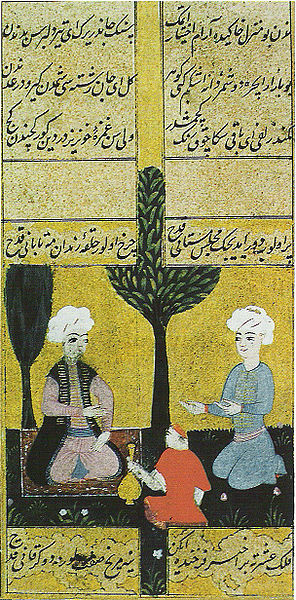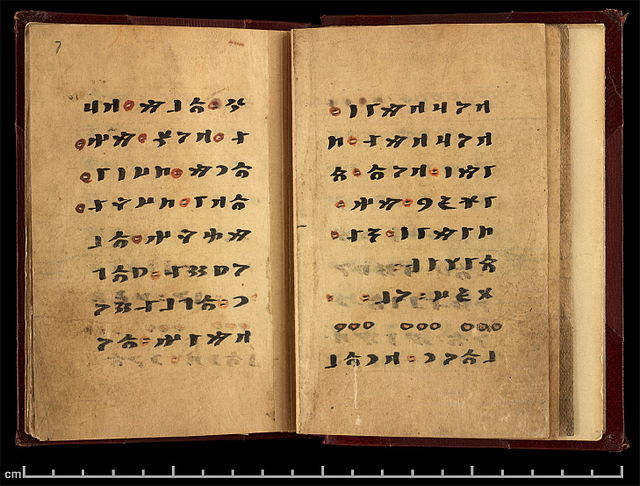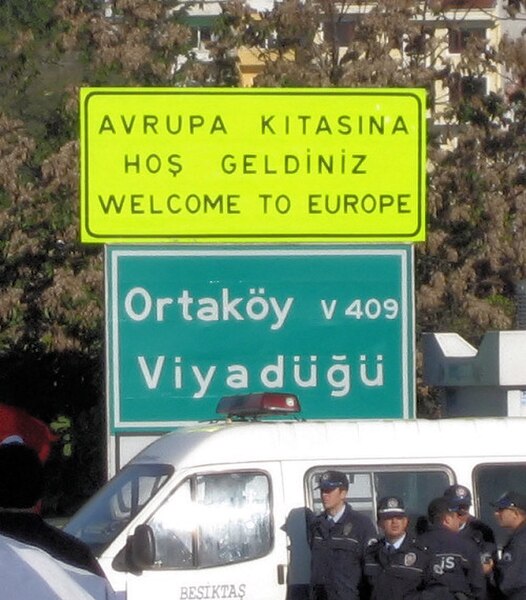Turkish literature comprises oral compositions and written texts in the Turkish language. The Ottoman form of Turkish, which forms the basis of much of the written corpus, was highly influenced by Persian and Arabic literature, and used the Ottoman Turkish alphabet.
An aşık performing in Anatolia, from an 18th-century Western engraving
An Ottoman garden party, with poet, guest, and cup-bearer; from the 16th-century Dîvân-ı Bâkî
A page from Nava'i's diwan. From the library of Suleiman the Magnificent.
Fuzûlî (1483?–1556), a Divan poet of Azerbaijani origin
Turkish is the most widely spoken of the Turkic languages, with around 90 to 100 million speakers. It is the national language of Turkey and Northern Cyprus. Significant smaller groups of Turkish speakers also exist in Germany, Austria, Bulgaria, North Macedonia, Greece, Cyprus, other parts of Europe, the South Caucasus, and some parts of Central Asia, Iraq, and Syria. Turkish is the 18th most spoken language in the world.
The 9th-century Irk Bitig or "Book of Divination"
The 15th century Book of Dede Korkut
An advertisement by the IKEA branch in Berlin written in the German and Turkish languages.
Road sign at the European end of the Bosphorus Bridge in Istanbul. (Photo taken during the 28th Istanbul Marathon in 2006)








